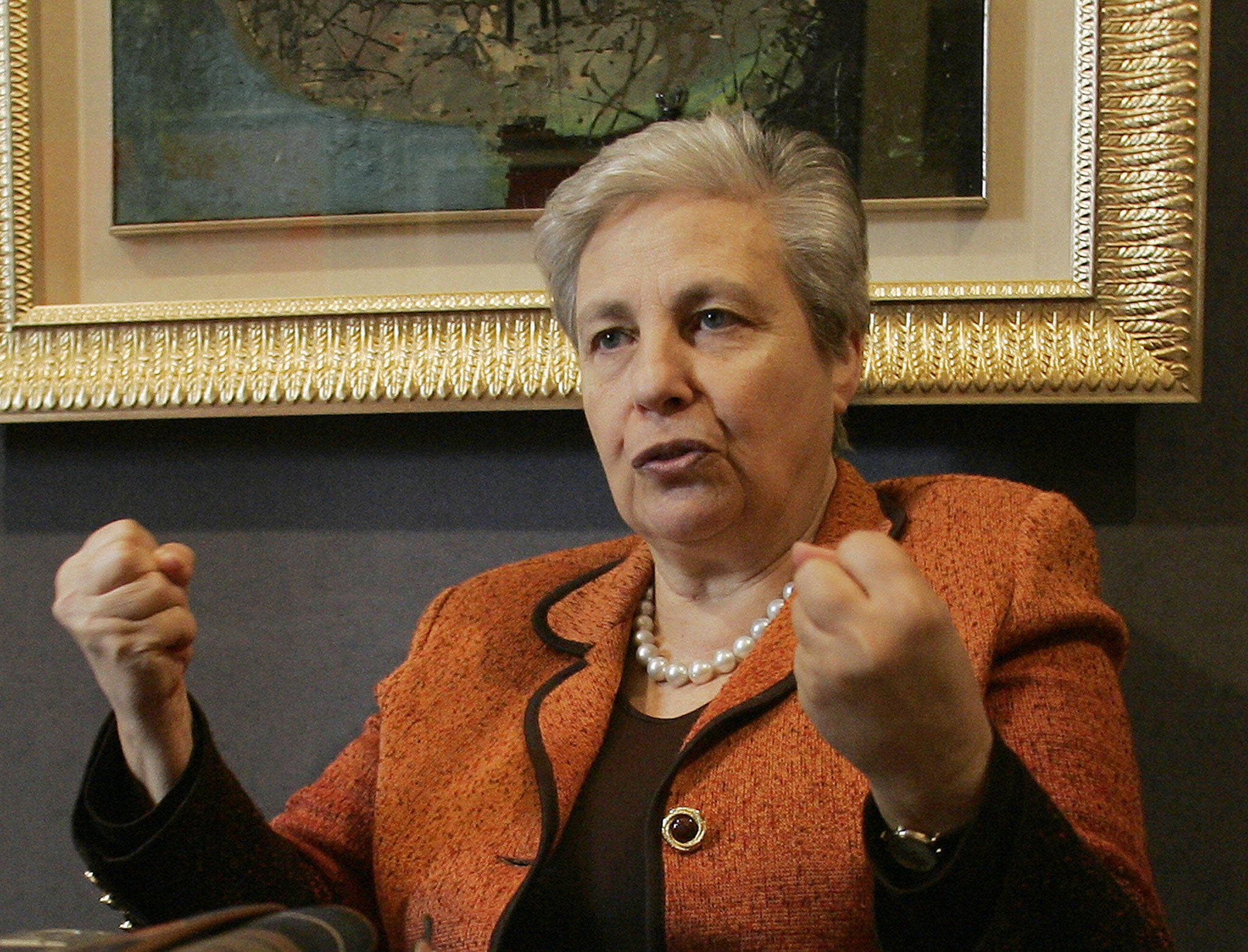Italy's 'anti-Mafia industry' comes under suspicion after shock claims over senior figures in fight against organised crime
The campaigner Rita Borsellino said the latest developments suggested something was rotten in the anti-Mafia movement

Your support helps us to tell the story
From reproductive rights to climate change to Big Tech, The Independent is on the ground when the story is developing. Whether it's investigating the financials of Elon Musk's pro-Trump PAC or producing our latest documentary, 'The A Word', which shines a light on the American women fighting for reproductive rights, we know how important it is to parse out the facts from the messaging.
At such a critical moment in US history, we need reporters on the ground. Your donation allows us to keep sending journalists to speak to both sides of the story.
The Independent is trusted by Americans across the entire political spectrum. And unlike many other quality news outlets, we choose not to lock Americans out of our reporting and analysis with paywalls. We believe quality journalism should be available to everyone, paid for by those who can afford it.
Your support makes all the difference.Fears are mounting that Italy’s anti-Mafia movement is starting to resemble the thing it set out to destroy. For the first time in its 50-year existence, the Italian parliament ’s Anti-Mafia Commission is to investigate the country’s burgeoning anti-Mafia “industry”, which advocates fighting back against organised crime.
The move comes after a series of shock claims about integrity of senior figures of the cause. In January, it emerged that Antonello Montante, president of the Sicilian branch of the employers’ organisation Confindustria, was officially under investigation. Several Mafia turncoats told prosecutors Mr Montante, Confindustria’s national spokesman on legality, and the confidant of ministers and police chiefs, was involved with Sicilian mob bosses. He denies the claims.
Last week came reports that investigators had caught Roberto Helg, Palermo’s chamber of commerce leader and another “anti-Mafia champion”, red-handed as he pocketed €100,000 (£72,100) that he’d extorted from a local businessman, who had tipped off police.
The campaigner Rita Borsellino, whose brother, the anti-mob prosecutor Paolo Borsellino died in a Mafia bomb attack in Palermo 1992, said the latest developments suggested something was rotten in the anti-Mafia movement.
“The movement sprang up spontaneously in Sicily on the wave of emotion after the massacres of 1992,” she said. “There are very many people who have got stuck in, who have sacrificed their time and their work... But unfortunately, even though it’s painful to say so, evidently others have hidden under this banner to pursue their own interests.”
On Friday, Leoluca Orlando, the Mayor of Palermo, said: “The truth is that we have to stop crediting people as representatives in the fight against the Mafia, because they then just distort things.” Or worse.
Mr Orlando no doubt had in mind Toto Cuffaro, the former governor of Sicily, who launched the “Mafia fa schifo” (Mafia sucks) campaign but who is now serving a seven-year prison term for Mafia association; or his successor Raffaele Lombardo who once told The Independent from his office in Palermo that “the fight against the Mafia starts here”. He was also sentenced to seven years for mob links three weeks ago.
Fears that the “anti-Mafia industry” has turned full circle and might now be part of the problem has led Rosy Bindi, the head of the parliamentary commission, to announce an investigation. “To really fight the Mafia you have to have a transparent anti-Mafia,” she said.
But Attilio Bolzoni, one of Italy’s leading anti-Mafia journalists, said this week that the movement has been made submissive due to its eagerness to win large handouts from Rome and the financial incentives meant officials and campaigners were less likely to question and criticise dubious policies or practices by politicians.
He cited the example of Claudio Scajola, an interior minister in Silvio Berlusconi’s second government, who is currently under investigation, as an example of a person who may not have been the ideal official to be overseeing the funding of the anti-mob campaigns.
Corrado De Rosa, another leading writer on the Mafia, agreed: “If the anti-Mafia movement loses its independence, its becomes weaker and less credible,” he said.
The Italian state can certainly point to notable successes in the endless war against the mob. The most notorious leaders of Cosa Nostra, the Camorra and even ’Ndrangheta are now behind bars. And anti-racket groups, such as Addiopizzo in Palermo, have given many businesses the confidence to stop paying protection money to mobsters.
However, like a hydra, new heads sprout up from the body of organised crime to replace the jailed bosses.
“Technically, the Mafia and corruption are two different things, but the border between them is increasingly thin,” said Mr De Rosa. He noted that the tendency for people who were not mobsters to begin adopting their methods was behind the emergence of the “Mafia Capitale”, a gang of corrupt officials and businessmen who have skimmed hundreds of millions of euros from Rome’s civic budget.
Join our commenting forum
Join thought-provoking conversations, follow other Independent readers and see their replies
Comments